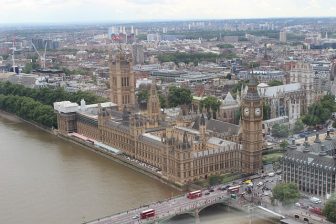 The Leasehold and Freehold Bill had its Second Reading in parliament yesterday, less than a fortnight since its publication.
The Leasehold and Freehold Bill had its Second Reading in parliament yesterday, less than a fortnight since its publication.
While broadly supporting the measures introduced in the Leasehold and Freehold Reform Bill there is still work to be done, says the Law Society of England and Wales.
Law Society president, Nick Emmerson, said: “Once the missing provisions have been included, the Bill could impact millions of homeowners and home buyers in England and Wales and could make improvements to the home buying and selling process.
“We would have been pleased to see more provisions in relation to the regulation of all kinds of property agents to assist the home buying and selling market.
“Proposals to require more transparency for both financial and non-financial information provided to leaseholders are welcome. Providing these in a standardised format for service charges would be a useful step. We support the general commitment to make it cheaper and easier for existing leaseholders to extend their lease or buy their freehold.
“However, the Bill does not yet deliver on the government’s commitment to ban the sale of new leasehold homes.
“Nor does it yet set out the provisions for making buying or selling a leasehold property quicker and easier, by setting a maximum time and fee for the freeholder to provide the information required to make a sale.
“It also doesn’t yet require freeholders, who manage their building directly, to belong to a redress scheme or protect leaseholders by extending the measures in the Building Safety Act 2022 to ensure it operates as intended.
“We welcome the government’s commitment to deliver on these proposals by amending the Bill as it makes its way through parliament.”
The Association of Leasehold Enfranchisement Practitioners (ALEP), which represents a wide range of leasehold enfranchisement practitioners, including both lawyers and surveyors, has also welcomed the reform – but with substantial amendments to the draft legislation.
It has supported the government over several years as it edged towards leasehold reform.
Its members are generally supportive of reform: at ALEP’s annual conference in October, 77.37% of attendees agreed that the leasehold system is in need of reform (while 21.17% stated that is was not, and 1.46% had no opinion). This compares to just 19% supporting the Labour party’s aspiration to ban leasehold within its first 100 days in Government.
However, it is widely recognised that leasehold reform is an extremely complex area of law and not one which should be rushed towards Royal Assent in the final months of the current government.
Mark Chick, director of ALEP said, “The Bill is complete game-changer for landlord and tenant law. Not only is it a game changer in terms of shifting the costs, burdens and responsibilities between the two parties, but the Bill also makes sweeping changes to valuation.”
Flaws in the draft Bill have already been identified, specifically concerning its ability to deliver on its objective of banning leasehold houses, and other commentators have raised questions in relation to the valuation mechanism, according to Chick.
He continued: “We recognise and appreciate that it is the Government’s stated aim to make the leasehold process cheaper and easier but leasehold enfranchisement practitioners question whether the Bill, in its current draft, will do this fully and effectively.”
Another interesting aspect of the proposed new legislation is the question of who pays the legal and valuation costs. Currently, those looking to purchase have to pay the legal costs of the landlord when buying out their interest. ALEP’s members were asked, “Do you think that landlords should be responsible for their own legal costs [in the case of leaseholder-led enfranchisement]?, to which a clear majority (73.81%) responded ‘no’.
Chick added: “Should, as we understand the Government is proposing, freeholders be required to pay the legal costs if leaseholders choose to enfranchise, this will be the only instance of a compulsory acquisition whereby the party whose interests are being purchased does not have their costs paid –compare for instance with the compulsory purchase legislation , for example, where the costs are paid by the acquiring party.”
ALEP valuer committee member, Mark Wilson, who is managing director of myleasehold, raises another concern about the Bill’s proposal to increase to 25% the non-residential threshold for mixed-use property.
He explained: “I have concerns that the proposed expansion of the types of buildings that flat owners can acquire could conceivably encompass significant trophy mixed-use estates, such as parades of shops. By significantly reducing the value of these highly prized assets, the new flat owning freeholders may lack the expertise or financial means to maintain these highly prized properties effectively. Poor management, or under investment, could negatively impact on high rent paying commercial shop tenants, and even extend to affecting the surrounding built environment.
“Under the management of new freeholders who may lack the expertise or financial means to maintain them, these highly prized properties may decline in value. Confusing the management of our built environment as part of a desire to reduce wealth inequality will have consequences, creating a Pandora’s box of unintended consequences. What takes no imagination is situations where professional management is replaced by novices and exploitation of a new regime replacing previous abuses of power.”
Both ALEP and the Law Society of England and Wales hope to influence the government on the necessary amendments to the legislation.


Comments are closed.